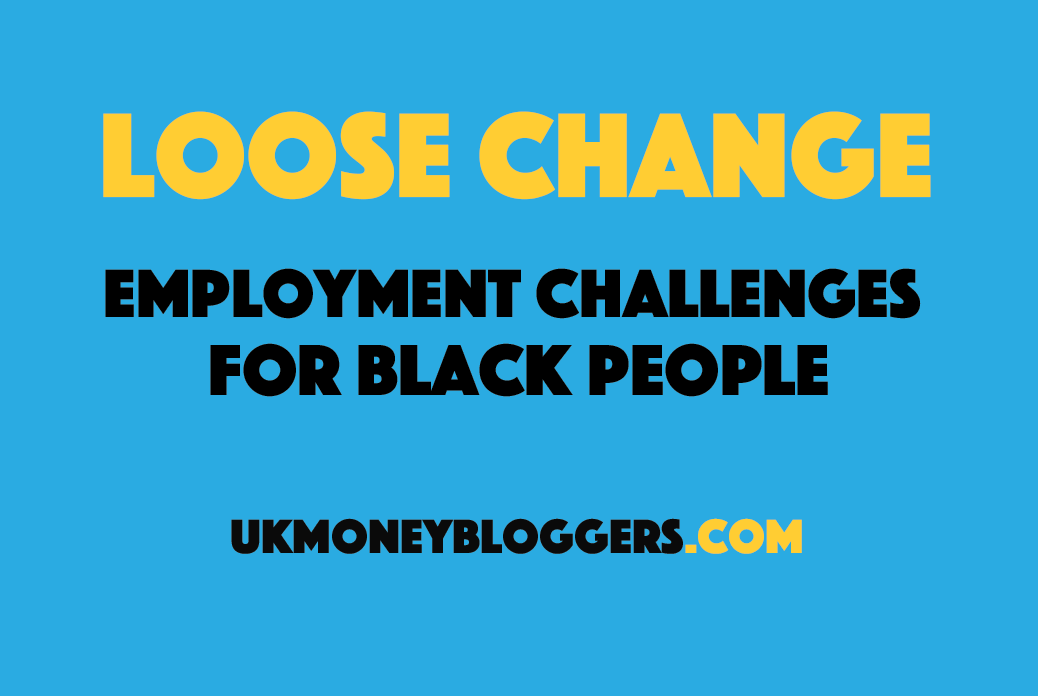Loose Change is a series of blogposts by members of the UK Money Blogger community where they let loose on a financial issue important to them.
This week Katie from Student Skint shares her experiences applying for jobs as a black woman.
Across the past couple of months, the entire world has seen a much-needed rise in support of the Black Lives Matter (BLM) movement. The UK Money Bloggers have been holding weekly Zoom meetings to discuss these issues and are working together on ways to spread awareness amongst the money-blogging community for BLM.
As a member of the black community (mixed raced – half black, half white), I’d like to shed some light on discrimination that many black people face when it comes to employment whilst it’s very topical as so many people’s jobs and incomes being affected by the global pandemic.
Before I start, I must acknowledge the privilege that I do have when it comes to my race. As a mixed-race female, I don’t experience racism or discrimination to the same degree that other black people do, especially men and there are some amazing attributes to being part of two ethnicities and cultures which I’m not ignoring.
Declaring ethnicity on a job application form
It baffles me why companies ask this…what has my heritage (which I have no control over) got to do with my ability to get the job?
Because they know our ethnicity, if the recruiter or company are racist, they’re able to easily disregard non-white people’s applications which means we aren’t necessarily given an equal chance.
- If I tick the correct box ‘mixed – white and black Caribbean’ will they not consider me because they’d prefer a visibly white person and they’re assuming I have a dark complexion?
- If I tick the correct box ‘mixed – white and black Caribbean’ will they be more likely to consider me because I help increase their percentage of ethnic minorities? In which case, I’d rather not work for a company who employs me just because it makes them look good
- If I tick ‘prefer not to answer’ will they assume I have something to hide and still not consider me?
I’m tempted to tick the ‘white’ box from now on and see if anyone mentions it.
When the interviewer isn’t expecting someone who looks like you
This also happens with services which have been booked over the phone or by email such as a beauty appointment.
I’ve been told plenty of times by friends who mean no harm that I ‘sound white’ especially over the phone and in addition to my familiar English first name and German surname, that usually means someone is expecting a visibly white person to walk through the door. This is really problematic because accents and names are not directly related to skin colour at all!
Countless times, remarks along the lines of “Oh! You’re Katie?” have been made by an interviewer or beauty therapist with a shocked look on their face.
Unequal job opportunities
I like to believe that credentials speak for themselves, but that isn’t always the case.
Black people are less likely to be given positions of power and authority within the workplace and this is a contributing factor to the racial debt gap.
Within the jobs I’ve had (so far), I’ve felt that my race and skin colour haven’t been a barrier, although unfortunately, this won’t be the case for other black people.
Free ways to support Black Lives Matter
There’s lots of free ways that you can support the BLM movement if you’re unable to donate to various charities and organisations, here are just a few:
- Visit https://blacklivesmatter.com/ to learn what’s going on and sign up to join the global movement
- Sign petitions that are against racism, discrimination and police brutality
- Educate yourself via documentaries and films across Netflix, YouTube, BBC iPlayer etc
- Share information, facts and supportive messages on social media
- Have meaningful conversations with friends, family and coworkers to understand how they feel about certain things and learn how you can help them
- Follow and use black-owned businesses
- Speak up when you see or hear something wrong

